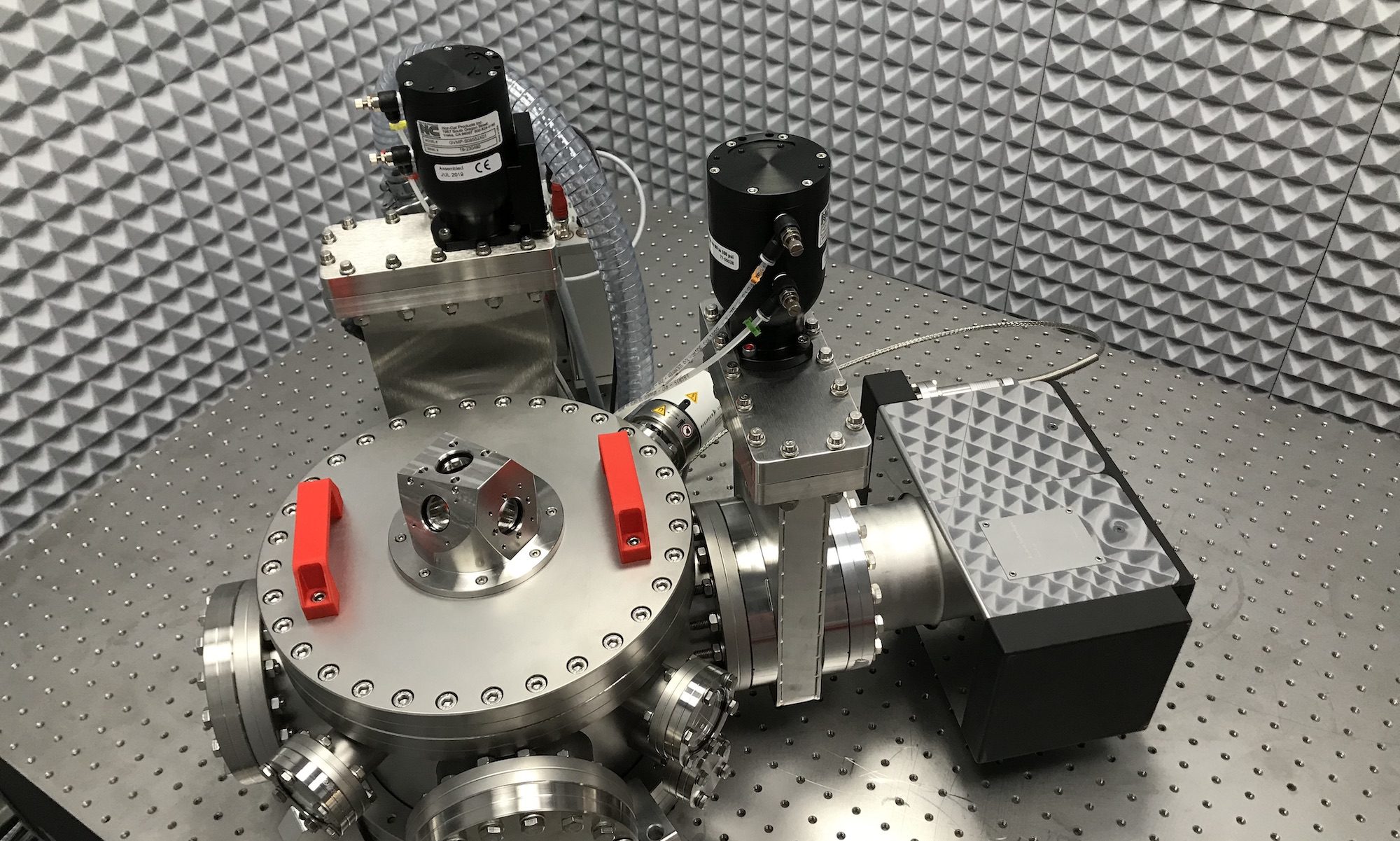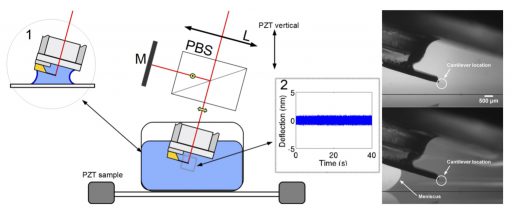Romina Muñoz, Felipe Aguilar-Sandoval, Ludovic Bellon, and Francisco Melo, PLoS ONE 12, e0189979 (2017)
doi: 10.1371/journal.pone.0189979
The accurate characterization of proteins in both their native and denatured states is essential to effectively understand protein function, folding and stability. As a proof of concept, a micro rheological method is applied, based on the characterization of thermal fluctuations of a micro cantilever immersed in a bovine serum albumin solution, to assess changes in the viscosity associated with modifications in the protein’s structure under the denaturant effect of urea. Through modeling the power spectrum density of the cantilever’s fluctuations over a broad frequency band, it is possible to implement a fitting procedure to accurately determine the viscosity of the fluid, even at low volumes. Increases in viscosity during the denaturant process are identified using the assumption that the protein is a hard sphere, with a hydrodynamic radius that increases during unfolding. This is modeled accordingly through the Einstein-Batchelor formula. The Einstein-Batchelor formula estimates are verified through dynamic light scattering, which measures the hydrodynamic radius of proteins. Thus, this methodology is proven to be suitable for the study of protein folding in samples of small size at vanishing shear stresses.

